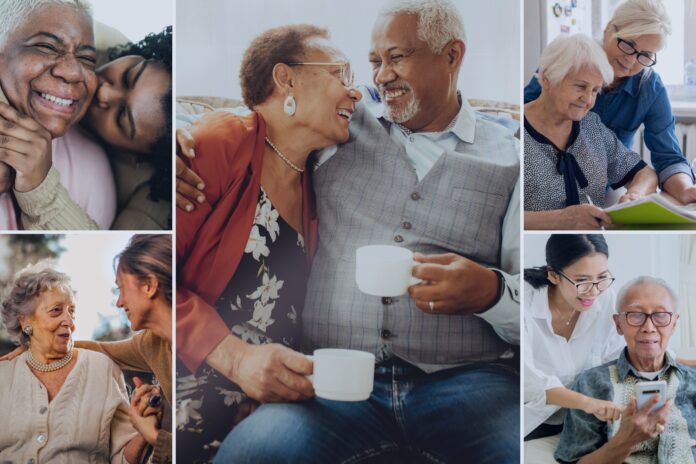When Shaw Skillings’ wife received an Alzheimer’s disease diagnosis in 2019, his head was spinning. Babs, then 77 years old, had been experiencing serious memory problems. By 2021, it wasn’t safe for her to drive. She couldn’t knit hats for preemie babies at a local hospital, something she had done for over 10 years. Always social, Babs struggled to remember names and follow conversations.
Babs continued to decline until she was often confused and agitated, especially in the evenings. Shaw’s attempts to help often added to her frustration and created tension between them.
“I was doom and gloom for a long time after the diagnosis,” says Shaw, who lives in Roswell, Georgia, with Babs. “It seemed to me life was just a straight line down.”
“Still Good Days Ahead”
In 2021, Shaw brought Babs to Emory Healthcare’s Cognitive Neurology Program for an assessment. That’s when he experienced something he hadn’t felt for a while: hope.
Shaw and Babs met with the team, which includes physicians, nurse practitioners, nurses, neuropsychologists and clinical social workers. In addition to providing information about Babs’ diagnosis and care options, they talked to Shaw about his day-to-day challenges as his wife’s primary caregiver. They also encouraged him to take the six-week “Savvy Caregiver®” training course, which teaches vital skills and techniques to improve the quality of life for caregivers and people with dementia.
“The course opened my eyes to what Babs was going through and what she needed from me,” says Shaw. “I learned so much—why I need to care for myself, what to say when she gets upset and how to keep her active and having fun. Two years later, I can honestly say we both have joy in our lives. There are still good days ahead.”
Comprehensive Care for Families Living with a Dementia Diagnosis
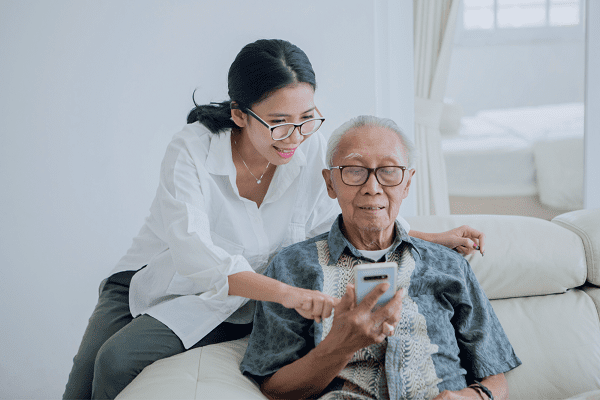 The Cognitive Neurology Program at Emory Healthcare has helped many people like Shaw and Babs who are experiencing the challenges of a dementia diagnosis. Part of Emory’s Goizueta Alzheimer’s Disease Research Center, the program provides comprehensive care for people with memory loss and cognitive decline and supportive programs for their families.
The Cognitive Neurology Program at Emory Healthcare has helped many people like Shaw and Babs who are experiencing the challenges of a dementia diagnosis. Part of Emory’s Goizueta Alzheimer’s Disease Research Center, the program provides comprehensive care for people with memory loss and cognitive decline and supportive programs for their families.
The Cognitive Neurology Program team:
- Evaluates the patient to identify what is causing their symptoms
- Generates a personalized care plan with the family, including supportive resources for the care partner
- Recommends treatment options and clinical research options, if available
Follow-up visits with this specialty clinic occur every six to 12 months, allowing the team to check in with the family and adjust the care plan if needed.
The clinic also provides a number of resources, support groups and counseling for patients and their families.
Common Challenges Caregivers Face
Ashley Varner is one of the program’s three clinical social workers and says support for dementia caregivers is critical. “When you become the primary caregiver for somebody with dementia, it can be a full-time job on top of an already busy life,” Varner says.
“You worry a lot whether you’re doing it right and if there’s more you should be doing,” she adds. “And you deal with the stress of helping a person who is changing before your eyes and the uncertainty of what’s coming next. You might have financial stressors, too, or conflicts with other family members who don’t understand the challenges you and your loved one are facing.”
Varner and her colleagues meet one-on-one with care partners to provide:
- Education about how dementia affects the brain and behavior
- Short-term psychotherapy focused on the issues of caregiving
- Information about virtual and in-person caregiver support groups
- Referrals to resources, such as home-based services, financial assistance programs and longer-term counseling services
Support for Dementia Care Partners Includes Building Caregiving Skills
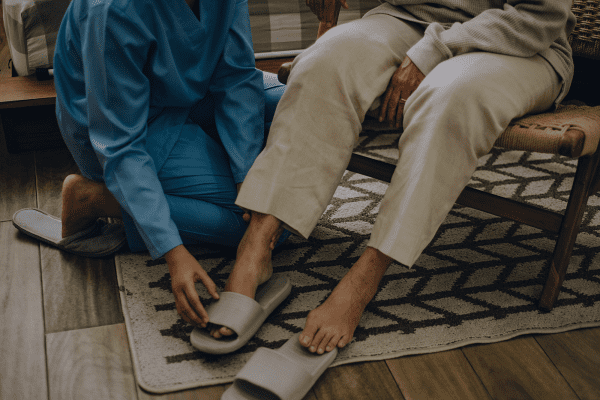 Varner teaches the Savvy Caregiver course, which occurs online several times yearly. It is free for Georgia residents who register by using a special website.
Varner teaches the Savvy Caregiver course, which occurs online several times yearly. It is free for Georgia residents who register by using a special website.
Emory offers the nationally recognized, evidence-based course in partnership with Georgia Memory Net. Each of the six sessions lasts two hours, and participants practice new skills between meetings.
The course is not a support group. Instead, it is an opportunity for caregivers to learn skills and connect with others facing the same challenges. Registration is limited to about 15 people per group.
Learning to Redirect and Reassure
Atlanta resident Natasha Patram signed up for Savvy Caregiver not long after her mother received a vascular dementia diagnosis in April 2023. She loved the course so much that she took screenshots during the meetings and sent notes and “assigned readings” to her five siblings.
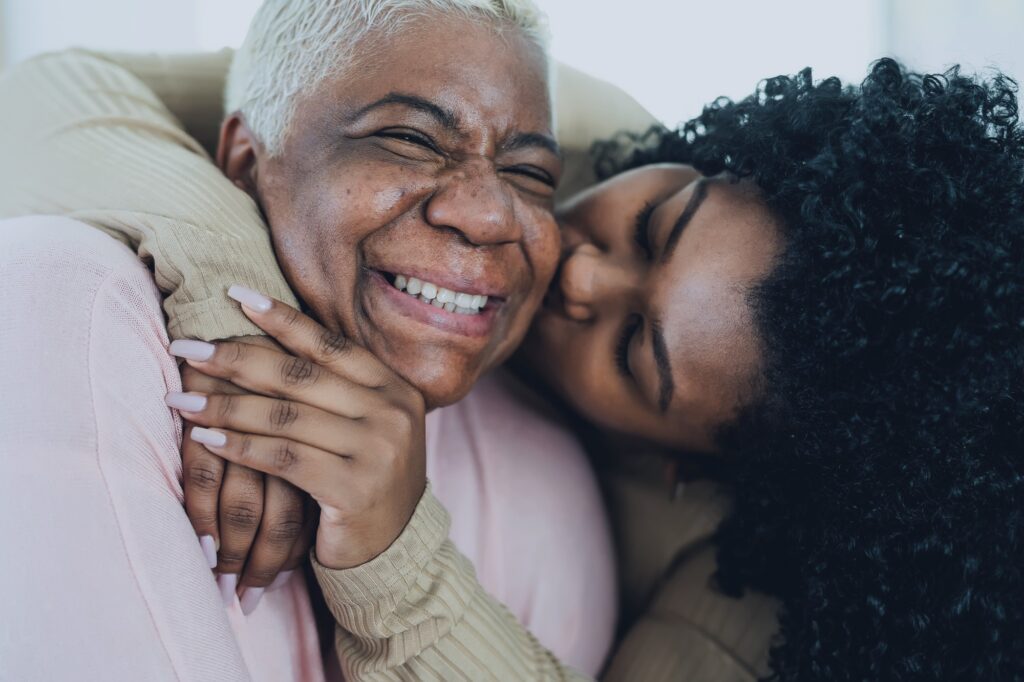 “Our family has never dealt with dementia before, and we needed support!” Natasha says. “Savvy Caregiver brought us together. It gave us a new perspective on Mom’s condition and taught us to work together to help her.”
“Our family has never dealt with dementia before, and we needed support!” Natasha says. “Savvy Caregiver brought us together. It gave us a new perspective on Mom’s condition and taught us to work together to help her.”
Natasha relies on what she learned to navigate difficult conversations with her mother. “The strategy I use most is to ‘redirect and reassure’ Mom when she starts to get riled up,” Natasha says. “For instance, she often gets upset because her garden doesn’t look as nice as before. I see her anxiety level rising, and I know there’s no sense in trying to reason with her. So, I just hug her, tell her she did a great job raising us and change the subject. It really helps.”
The Hope and Opportunity CEO
Shaw Skillings also continues to apply lessons from the Savvy Caregiver course as he cares for his wife. He most often uses lessons like “choose your battles,” “expect everything to take longer than it did before” and perhaps the most challenging, “be patient.”
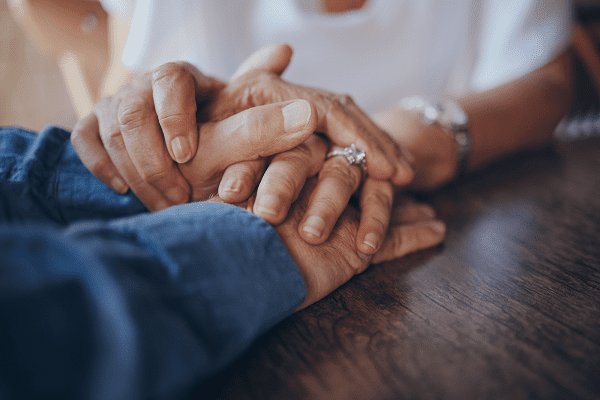 Once a high-level executive at Procter & Gamble, Shaw now sees his role as the family’s “hope and opportunity CEO.” His new role involves making sure his wife has opportunities to spend time with friends and volunteer at church.
Once a high-level executive at Procter & Gamble, Shaw now sees his role as the family’s “hope and opportunity CEO.” His new role involves making sure his wife has opportunities to spend time with friends and volunteer at church.
“Babsie is happiest when she’s with people,” Shaw says. “Every so often, she flashes me that great, big smile she always has when things are going great. It reminds me that we still love each other and want to be together, no matter what.”
Emory Offers Caregiver Support
Care partner stress is common and can lead to health issues such as depression, anxiety and hypertension. Symptoms include:
- Anger and irritability with your loved one
- Anxious thoughts about the future
- Difficulty sleeping
- Exhaustion
- “No time” to address new or existing health problems
- Overwhelming feelings of sadness
- Wanting to hide from others or simply be “left alone”
- Withdrawal from other relationships
If you are consistently experiencing any of these symptoms, consider registering for Savvy Caregiver. Additional support is available through Emory Healthcare’s Cognitive Neurology Program. You will need a referral from a provider to schedule an appointment with the program. The Georgia Chapter of the Alzheimer’s Association also provides extensive support for patients and families.
If you are a Georgia resident, visit our website to register free for an upcoming Savvy Caregiver course.


